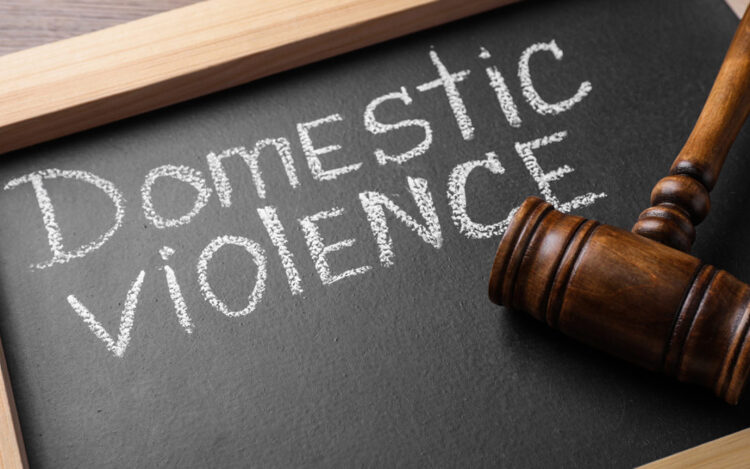One can notice a considerable increase in domestic violence cases since the pandemic hit the world. Newspapers in the US often contain headlines about domestic violence in various states. Laws regarding domestic assaults differ from state to state in the US. But it is a severe crime and threat to an individual’s life all over the American territory. The accused is likely to br brought up to court and face a trial. One will get convicted and lose certain assets as penalties and compensation if found guilty.
Domestic abuse is identified as a severe global crime. If convicted, the accused will be punished by the law and have to pay compensation for physical injuries to the victim if the accuser files an injury claim. Moreover, if the judge issues a protective order for the victims and the rest of the house’s residents, the accused must follow it and maintain distance and no contact with the protected.
All of this sounds very overwhelming and can turn one’s life miserable with no conclusion to the trial on end. If one is charged with domestic assault, it is necessary to seek a defense attorney immediately. An experienced advocate specializing in this field can help the defendant come out of the case with the best possible scenario. Click here to learn more about a defendant’s rights if charged with domestic assault in New Jersey.
This article reviews the steps involved in a domestic violence trial and how long it lasts in the USA.
Page Contents
What Happens After An Arrest?

Source: altshulerlaw.com
Arraignment is the next step after arresting the accused. It involves issuing allegations against the accused. The defendant can give a guilty or not guilty plea at this stage after consulting the defense attorney. If the indicted decides to change the entered plea from guilty to not guilty, one can do so during this process. It is advised to hire a criminal defense attorney to help one carry out the proceedings and advice regarding the next steps and the escape plan.
As soon as the arraignment is completed, court dates are assigned. The lawyer starts working on the case to defend his client. Before the actual trial begins in court, negotiations are made on the first date of the proceedings, where all the case facts are put forth, along with both parties’ histories and other data about the case. The attorney may reach out to any possible witnesses who can back up the defendant in court.
What Does The Lawyer Need To Know?
The defense advocate must be aware of the complete incidents of the assaults with favorable information on the defendant’s behalf that may be helpful during the negotiations. Any past aggressive behavior by the victim towards the accused, mental illnesses, or addictions can all represent the situation from a different perspective. Some past cases witnessed illegal accusations against the defendant. To ensure this doesn’t happen, one must immediately state the fact to the attorney. It is best advised to stay as accurate to the lawyer as possible regarding the case facts and the following events.
Does The Accused Has a Right To a Jury Trial?

Source: en.wikipedia.org
The US offers a jury trial to any individual accused of domestic violence, which may last for many days or weeks. The jury members hear all the testimonies for and against the defendant. The law enforcement involved in the investigation and other witnesses is summoned to testify in front of the jury. Case evidence is presented by both parties, which includes police reports and documentation of the crime by the victim party.
What Are The Possible Penalties?
If found guilty in criminal court, the convicted has to pay many criminal penalties, which include fines, compensations, probation, and imprisonment. If a protective order has been issued, the convicted must follow it in all circumstances or will have to face extended penalties. The defendant might no longer have their Second Amendment Rights and must surrender all weapons.
A Tulsa criminal lawyers law firm can help in such cases by providing expert legal advice and representation.
If the defendant is a parent, there may be additional trials in court to solve the disputes regarding the child’s custody. If the case is more threatening for the children, The Department Of Child And Family Services may be involved to take the matter to a family court.
How Long Do Domestic Violence Cases Last?
When faced with domestic violence charges, one may wait for the case to end in anticipation. There’s only one thing running in the defendant’s mind – How long will the case last?
There is no clear-cut answer to this question. A case regarding domestic violence may last for several months to carry out the proceedings and come to a conclusion or an end on the first day of the trial.

Source: fbi.gov
The second scenario occurs when the accused pleads guilty to the charges against him, and the court directly sentences one with penalties and other orders. But in the case of the first scenario, the defendant pleads not guilty, and the court assigns the first trial date. New trial dates continue to be given for months if the court cannot issue a sentence based on current pieces of evidence and testimonies.
Most people are advised to plead not guilty, irrespective of the evidence collected by the police or the prosecutor against them. Once pleaded not guilty, the defense lawyer will investigate the whole case and look for missing details and favorable facts. Both parties can make a negotiation with the help of a defense attorney on the defendant’s behalf.
How Does It Affect The Criminal Record?
If one is convicted of domestic violence, the crime forever sticks to the criminal record of the accused. One cannot seal or extirpate the form by any means. Anyone who ever comes across the record will identify that the individual had been convicted for domestic violence charges in the past. Criminal records are available for employers and landlords who need a background check before hiring an employee or renting a tenant. It might decrease one’s chances of employment and housing according to monmouthcountycriminallawyers.
Support Resources for Victims and Defendants
When confronting domestic violence, accessible support services play a crucial role for both victims and defendants. Hotlines, shelters, and counseling services provide immediate assistance, offering a safe space for victims to escape harm and begin the healing process. Legal aid organizations are equally vital, ensuring both parties have access to justice and fair representation. Emotional, legal, and practical support is essential for navigating the complex aftermath of domestic violence incidents. Engaging with these resources helps mitigate the immediate dangers and long-term repercussions of such situations.
Impact on Families and Relationships
Domestic violence casts long shadows over family dynamics and relationships, inflicting deep emotional, psychological, and financial strains. The repercussions extend beyond the immediate victim, affecting children and other family members who witness or are aware of the violence. These experiences can lead to a cycle of trauma, impacting individual well-being and future relationships. Addressing the underlying issues and seeking timely intervention is critical to breaking this cycle, fostering a healthier environment for all involved.
Prevention and Education Initiatives
Preventing domestic violence and raising awareness are pivotal components of a broader strategy to combat this issue. Educational programs tailored for schools, workplaces, and communities play a significant role in this regard. These initiatives focus on early intervention, teaching bystander intervention techniques, and promoting dynamics of healthy relationships. By embedding these principles early on and across various societal segments, the potential for preventing domestic violence increases, creating safer environments for everyone.
Cultural and Societal Factors
Understanding the cultural and societal factors that contribute to the prevalence of domestic violence is essential for crafting effective interventions. Gender norms, power dynamics, and social attitudes towards violence all play a role in perpetuating this issue. Addressing these root causes requires a multifaceted approach that includes promoting cultural sensitivity and challenging existing norms that normalize or excuse violence. Only through a comprehensive understanding and targeted action can the cycle of domestic violence be effectively countered.
Legislative and Policy Measures
Legislative and policy measures are fundamental to the fight against domestic violence. These include legal reforms aimed at protecting victims, funding allocations for support services, and the establishment of robust enforcement mechanisms. However, gaps in legislation often remain, highlighting areas for improvement. A comprehensive approach to addressing domestic violence requires continuous evaluation and adaptation of laws and policies to ensure they meet the needs of those affected by such violence effectively.
Rehabilitation and Intervention Programs
Rehabilitation and intervention programs play a crucial role in addressing domestic violence, particularly concerning the perpetrators. These programs aim to tackle underlying issues such as anger management, substance abuse, and mental health concerns, which are often root causes of violent behavior. Both court-mandated programs and voluntary initiatives are essential in promoting behavior change and accountability. Court-mandated programs ensure that perpetrators face consequences for their actions, while voluntary initiatives can prevent violence through early intervention. These programs focus not just on punishment but on rehabilitation, offering individuals the tools and resources needed to make positive changes in their behavior.
Community Collaboration and Engagement
The success in addressing domestic violence significantly depends on community collaboration and engagement. Partnerships between law enforcement, healthcare providers, social services, and community organizations are vital. These alliances ensure a comprehensive approach to supporting survivors, holding perpetrators accountable, and preventing future incidents. Community-based initiatives and awareness campaigns play a critical role in educating the public about domestic violence, its signs, and how to seek help. Grassroots efforts, driven by those within the community, foster a culture of support and intervention, showing that domestic violence is not a private issue but a societal one that requires collective action. Through these collaborative efforts, communities can develop effective strategies to combat domestic violence, ensuring safety and support for all affected individuals.
The Bottom Line

Source: ajafamilylaw.com
Although a court trial may not always be the best possible solution, one must gather enough favorable evidence in their favor and consult a defense attorney to help with further proceedings. One can negotiate and reach an agreement with the prosecution party before the formal trial with the help of an advocate.





